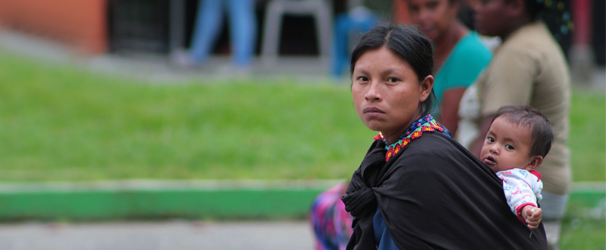Disarmament, Demobilisation and Reintegration (DDR): Lessons from Guatemala
 This policy brief analyses the case of Guatemala to describe what returning home can look like for female ex-combatants, and how they could better be supported to maintain the gender equality experienced during conflict.
This policy brief analyses the case of Guatemala to describe what returning home can look like for female ex-combatants, and how they could better be supported to maintain the gender equality experienced during conflict.
Executive summary
The tendency to leave ex-combatants and receiving communities to their own devices to deal with the social aspects of reintegration can have damaging impacts on women’s lives.
Obstacles encountered by women include problematic emotional and family relationships, leading to psychological problems and even violence; persisting stigma producing anxiety and problems in the labour market; the loss of unity which prevents women from claiming their rights collectively.
Recommendations include: integrate actions directed at household and family relationships within DDR; providing counselling and family support for men and women; organisational processes and societal sensitisation.
Background
After armed conflicts, support often focuses on economic and political reintegration, which is easier to implement and monitor, but leaves ex-combatants and receiving communities to their own devices to rebuild trust between social groups. This can be especially difficult for women, who after experiencing new roles in armed groups are often forced back into traditional gender roles. This has made peace a disappointing experience for female ex-combatants.
Academic(s)
Dr Sanne Weber
Download the full briefing
Descargar en español
Contact us